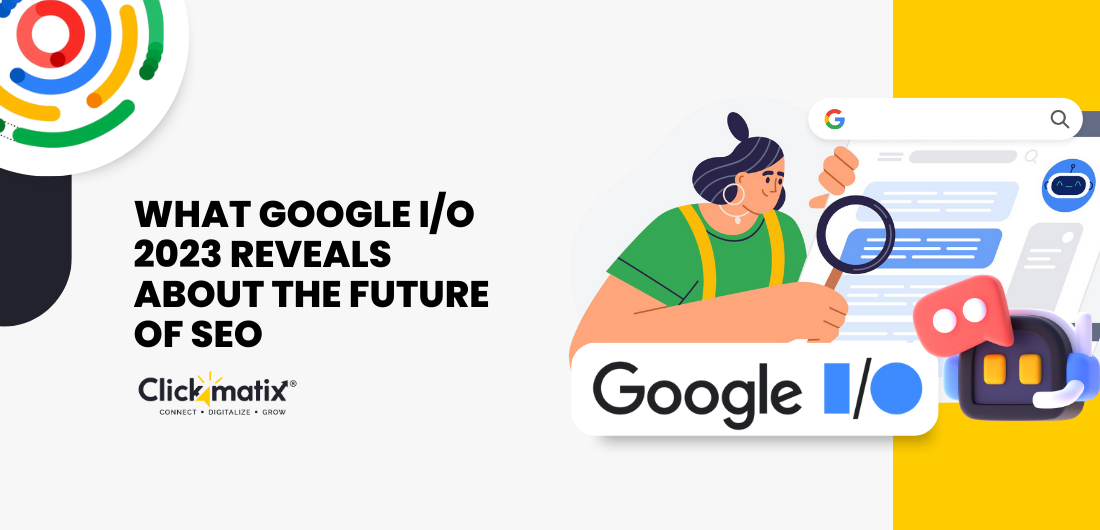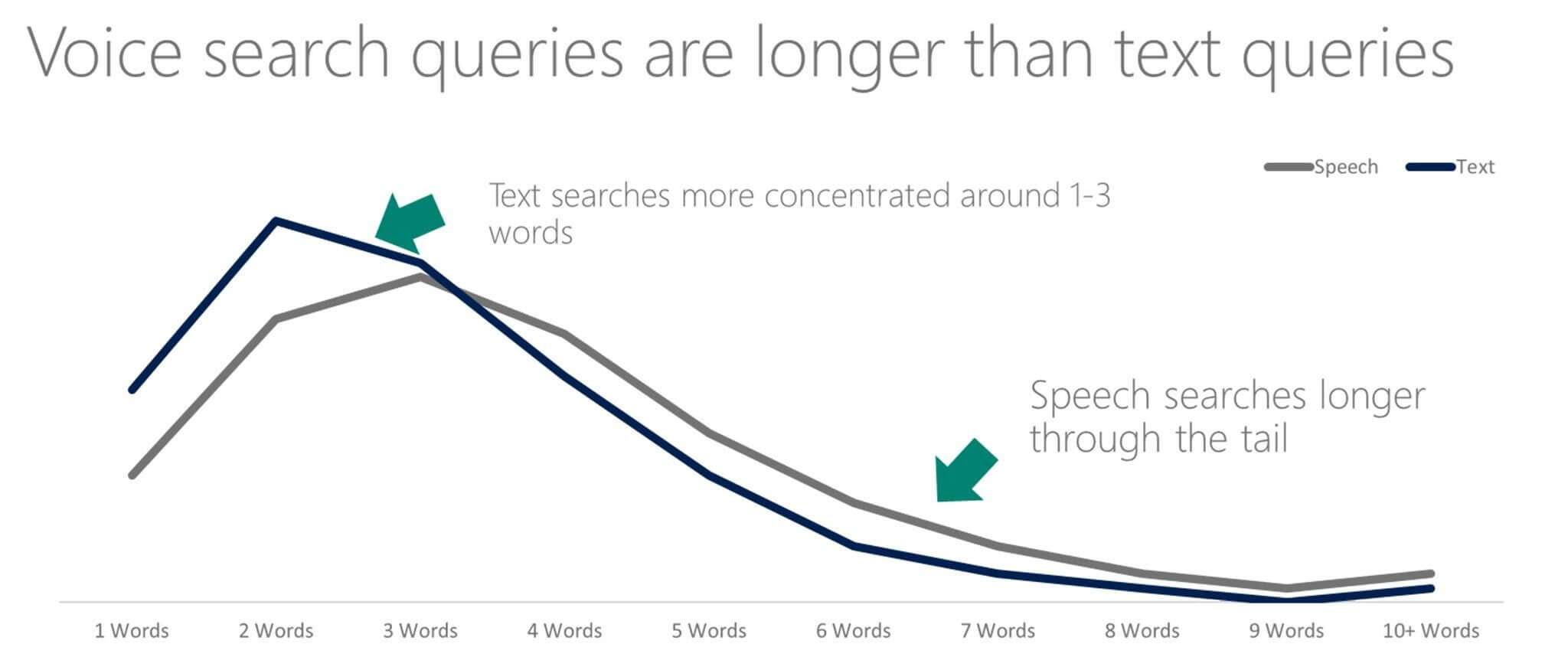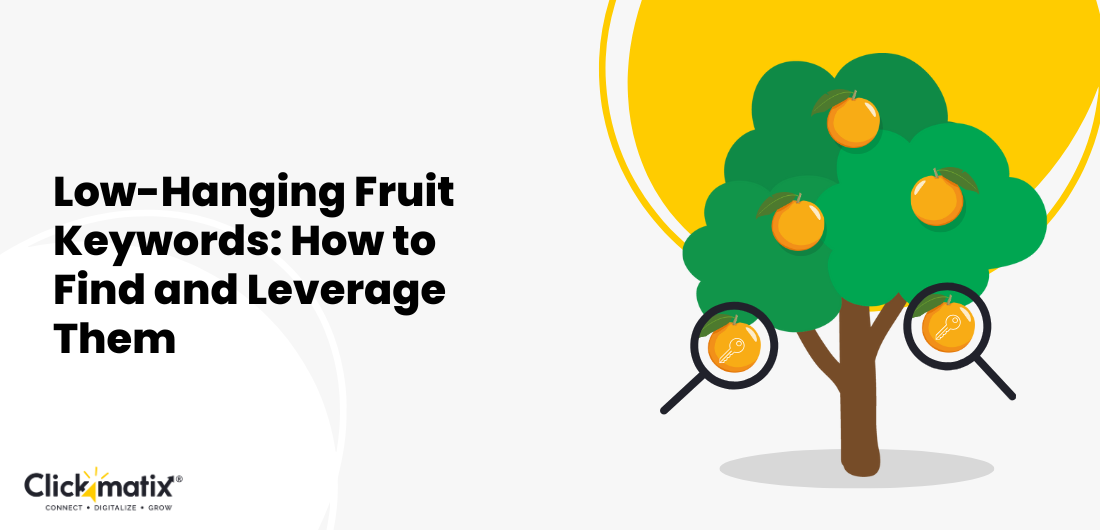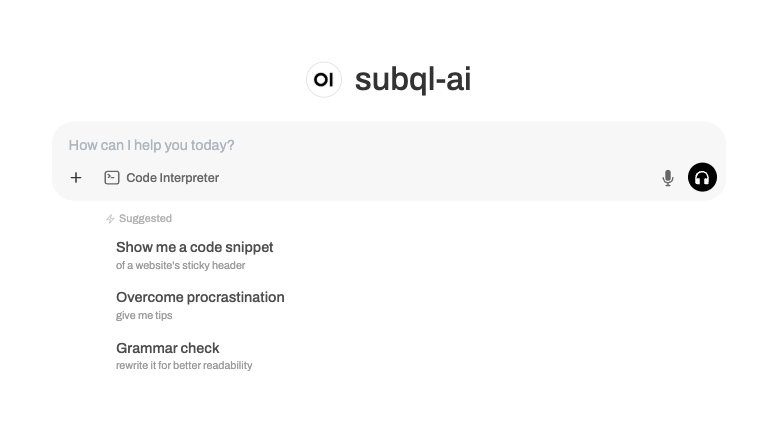The Future of SEO: Trends and Predictions for 2024 and Beyond
SEO is a crucial tool for businesses to stay competitive. But it’s not the SEO of a few years ago. The landscape is shifting rapidly, and in 2024, it’s more important than ever to understand the key trends that will shape the future of SEO. Why is SEO so important in 2024? The answer lies […]

SEO is a crucial tool for businesses to stay competitive. But it’s not the SEO of a few years ago. The landscape is shifting rapidly, and in 2024, it’s more important than ever to understand the key trends that will shape the future of SEO.
Why is SEO so important in 2024? The answer lies in the changing behaviour of consumers and the increasing sophistication of search engines. With the rise of AI, voice search, and visual content, businesses face new challenges in optimising their online presence.
In this blog, we’ll explore the most significant developments and discuss how they impact search engine rankings. We’ll explore the role of AI in SEO, the growing importance of voice search, the impact of video content, and the continued emphasis on user experience.
By understanding these trends, businesses can develop effective SEO strategies to stay ahead of the competition. We’ll provide practical tips and insights to help you navigate the evolving SEO landscape and ensure your website remains visible in search results.
The Impact of AI and Machine Learning on SEO
Imagine a world where search engines can understand your thoughts. It sounds like something from a movie, right? But this is becoming real thanks to artificial intelligence (AI) and machine learning, shaping the future of SEO in ways we never imagined.
Google’s RankBrain is a great example of AI in action. It helps Google understand what people are searching for better, making search results more helpful. This means that SEO is getting more difficult, but the rewards are bigger.

AI tools are now important for marketers. They can help you:
- Make your content better: AI can suggest ways to improve your content.
- Understand what people are searching for: Stay ahead by knowing what people are looking for.
- Show people what they want to see: Target your audience better with personalised content.
AI-powered SEO tools are becoming more important. Businesses need to use them to stay competitive. By 2024, these tools will be even better, giving you more information and helping you improve your content faster.
Many businesses need help keeping up with these changes. They are missing out on opportunities and losing ground in search rankings.
Using AI-powered SEO tools can make things like keyword research and SERP analysis easier, helping companies stay ahead of the competition and get better results.
Voice Search and Its Growing Influence on SEO
With the popularity of smart speakers like Alexa and Google Home, voice search is booming. By 2024, it’s estimated that more than half of all searches will be done using voice.
This shift has big implications for the future of SEO. Unlike traditional text searches, voice searches often use natural, conversational language. This means we’re seeing a rise in long-tail keywords, which are more specific and detailed.

Businesses need to adapt to this new trend. To rank well for voice searches, you need to:
- Use long-tail keywords: Focus on more specific phrases that people might use when speaking.
- Create conversational content: Answer questions directly and provide clear, concise information.
Many websites are still not optimised for voice search, which means they’re missing out on a huge opportunity. By following these tips, businesses can better align with the way people use voice search and improve their chances of ranking for these queries.
The Role of Video and Visual Content in SEO
Video content is taking over, and search engines are taking notice. Platforms like YouTube, TikTok, Instagram and even Google Lens are now essential parts of any successful SEO strategy. In 2024, businesses need to focus on optimising video content because it’s becoming more and more important in search results.
But that’s not all. Visual search technology, where people search using images instead of words, is also growing. Google Lens is a great example. It lets you take a picture and search for similar images or information.
Many businesses are slow to incorporate video content into their future of SEO strategies. This is a missed opportunity, as videos are highly engaging and can significantly improve your search rankings, driving more traffic and boosting visibility.

To make the most of video SEO, you need to optimise things like thumbnails, descriptions, and metadata. This will help your videos get discovered and watched.
Optimising your images for visual search can also boost your visibility. So, whether you’re sharing videos or images, make sure they’re optimised for search engines.
The Importance of Core Web Vitals and User Experience
Site speed and a website’s appearance on mobile devices are especially important. Businesses need to optimise these things to meet Google’s high standards.

If your website is slow or hard to use on mobile, it can hurt your SEO rankings. This means fewer people will see your website in search results.
To improve your Core Web Vitals, you need to make sure your website loads quickly, looks good on all devices and has a stable layout. This will help your website stay competitive and attract more visitors.
E-A-T (Expertise, Authoritativeness, Trustworthiness) and the Future of Content Quality
E-A-T, or Expertise, Authoritativeness, and Trustworthiness, has been climbing the ranks as a crucial factor in content ranking. And its importance is only going to grow. Google’s algorithms are getting smarter by the day. They’re prioritising high-quality, credible content from authoritative sources, especially in fields like healthcare, finance, and law. So if you want your content to reign supreme in 2024, E-A-T is your golden ticket.
But what does it mean to be E-A-T-worthy? Well, it’s not just about being informative; your content must come from trusted and credible voices in your industry. Imagine you’re looking for advice on heart health. Would you rather read a blog post by a random person online or a piece written by a renowned cardiologist? Exactly.

Many businesses are churning out generic, shallow content that’s not cutting it in today’s competitive landscape. They’re getting lost in the sea of information, and their rankings are taking a hit.
The solution? Focus on creating well-researched, expert-driven content. By demonstrating your expertise and authority, you’ll build trust with your audience and search engines alike. People will be more likely to share your content and link to it, and ultimately, Google will reward you with higher rankings.
The Evolution of Local SEO
Think about the last time you wanted to find a nearby restaurant. Chances are, you pulled out your phone and searched for “restaurants near me.” This is where local SEO comes into play. As more and more people are using their smartphones for local searches, it’s becoming increasingly important for businesses to optimise their online presence for these queries.
Google Business Profile (GBP) will continue to be a crucial tool for local SEO. It allows businesses to manage their online presence, including their listing, reviews, and photos. Keeping your GBP listing up-to-date and accurate makes it easier for potential customers to find you.
Proximity searches and real-time updates will also play a big role in local SEO. When people search for “restaurants near me,” Google will show them results based on their location. And features like real-time updates, such as store hours or menu changes, can help you stand out from the competition.

Augmented reality (AR) is another exciting development in local SEO. Imagine being able to point your phone at a building and see reviews or information about nearby businesses. AR can potentially create a more immersive and personalised search experience for users.
Many small businesses find it tough to compete with larger companies in local search rankings.
By focusing on local SEO, optimising your Google My Business listing, and ensuring your NAP (Name, Address, Phone Number) information is accurate, you can improve your chances of ranking higher in local searches.
So, if you’re a small business owner, don’t overlook the importance of local SEO. By staying up-to-date on the latest trends and best practices, you can attract more customers and grow your business.
The Role of Mobile-First Indexing in the Future of SEO
Google’s mobile-first indexing has turned the world of SEO upside down. It’s like saying, “Hey, if you want to be seen, you gotta look good on a phone.”
But what does it mean? Google is now using the mobile version of your website to determine its ranking in search results. If your website looks like a mess on a phone, it’s going to get buried deep in the search engine abyss.
More and more people are using their phones to search for things. If your website isn’t optimised for mobile, you’re essentially telling those people, “I don’t care about you.” And that’s not a good look.

Make your website mobile-friendly. This means it should be easy to navigate, load quickly, and look good on all screen sizes.
Your website is like a store. If your store is a mess, people won’t want to shop there. But if your store is clean, organised, and easy to find, people will keep coming back.
Mobile-first indexing is a game-changer for SEO. If you want to stay relevant in today’s digital world, you need to make sure your website is optimised for mobile.
Structured Data and the Role of Schema Markup
Imagine you’re hungry. You search for “best pizza near me.” Google doesn’t just list a bunch of restaurants; it shows you pictures of their pizzas, ratings, and even delivery times. How does it do that? It’s thanks to structured data and schema markup.
Structured data is like a translator for search engines. It helps them understand the content on your website better. For example, you could tell Google that a piece of text is a product name, a price, or a review. This information helps Google show your content in a more visually appealing and informative way.
Schema markup is a specific type of structured data that uses a vocabulary understood by search engines. It’s like a recipe book for your website, providing instructions on how Google should interpret your content.

As AI-powered search algorithms get smarter, they’re looking for more than just keywords. They want to understand the context of your content. Structured data helps you communicate that context.
If your website is a restaurant, structured data is the menu. A well-organised menu helps customers (search engines) understand what you offer and choose the right dish (search result).
Many websites are missing out on the benefits of structured data. They’re not using schema markup to help search engines understand their content fully.
Implementing structured data can lead to richer, more engaging search results. This can improve your website’s visibility and attract more clicks. It’s like adding a sprinkle of magic to your SEO strategy.
So, start exploring structured data and schema markup today. Your website will thank you!
Conclusion
The future of SEO is brimming with opportunities and challenges. As we look ahead to 2024 and beyond, it’s clear that AI, voice search, video content, Core Web Vitals, E-A-T, local SEO, mobile-first indexing, and structured data will continue to shape the landscape.
Businesses that fail to adapt to these changes risk falling behind in the competitive digital world. Those that embrace these trends and prioritise user experience will thrive. The key takeaway is to stay informed about the latest SEO developments, be adaptable to change, and always optimise for both search engines and users. By doing so, you can position your business for success in the evolving SEO environment.
What's Your Reaction?










































.png)









































